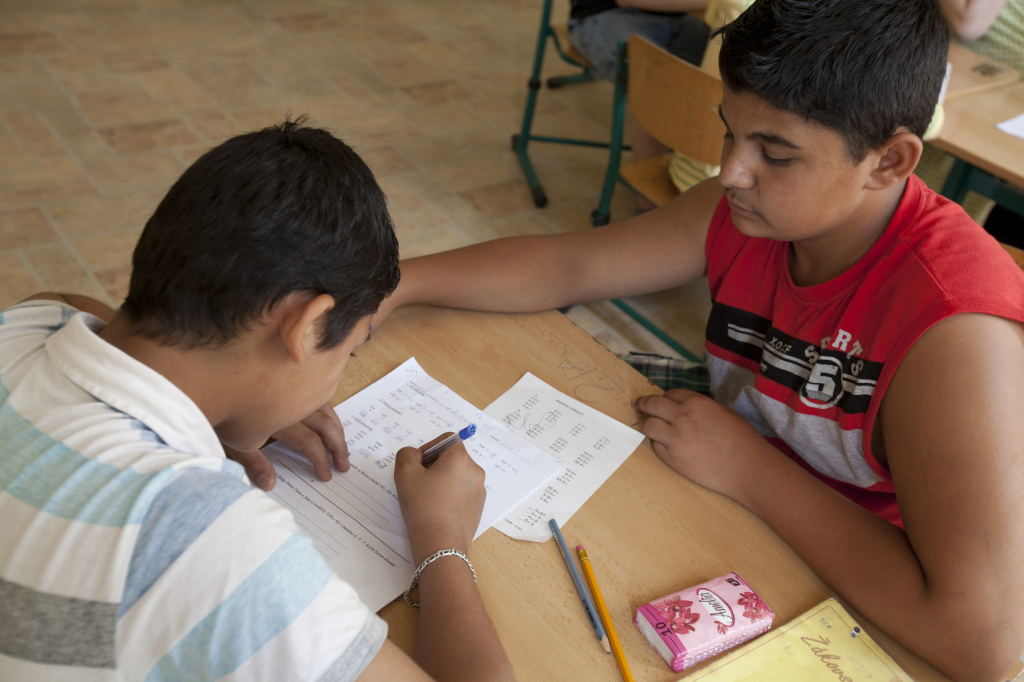15 years after DH, Czechs carry on segregating: ‘Roma face discrimination in every aspect of their lives’
09 October 2023

In a newly published report on her February 2023 visit to the Czech Republic, the Commissioner for Human Rights of the Council of Europe, Dunja Mijatović, expressed her deep concern that “Tangible progress on the advancement of the rights of Roma and their equal treatment has by and large been lacking”; and that Roma continue to face discrimination in virtually every area of life, which includes education, housing, employment and their interactions with police.
With regards to mechanism for compensation for Romani victims of forced sterilisation, the Commissioner called on the authorities to swiftly address the problems in implementation “so that victims can receive prompt and adequate reparations for the serious human rights violations to which they were subjected.”
She was further concerned that progress on long-standing human rights issues in relation to Roma and people with disabilities is being held back, and implementation of policy and legislation stymied by the fragmentation of responsibilities and diffusion of powers between the state government and regional and municipal authorities.
From the perspective of her human rights mandate, the Commissioner signalled her concern at how these constitutional arrangements “may be preventing a real breakthrough in key areas, including tackling segregation in the education system and advancing deinstitutionalisation.”
School segregation: “little recognition of the need for a paradigm shift”
As the 15th anniversary approaches of the judgment of the European Court of Human Rights in the case of D.H. and Others v. the Czech Republic, the Commissioner found that progress remains minimal, and recent research shows there has been “no reduction of Roma pupils in special classes, nor of their segregation within regular classes and schools, over the past five years.” Romani children continue to be vastly overrepresented in special classes or schools; and in special education, the percentage of Romani children educated according to a programme with reduced requirements had actually increased.
As the Commissioner previously noted, tackling discrimination in education has “too often focused primarily on legislative and technical measures related to the organisation of the Czech education system in a somewhat narrow sense.”
She reiterated her predecessor’s warnings in 2013, that the authorities’ efforts to fine-tune the testing system – which was designed to exclude children rather than assign to them appropriate support within the mainstream education system – should not detract from the need for systemic change to tackle biases, prejudices, discrimination and segregation of Roma children in education.
Ten years on, in her discussions with the authorities, she “observed little recognition of the need for a paradigm shift on testing, and her impression is that the focus remains on fine-tuning diagnostic tools.”
The Commissioner heard from civil society that in some cases municipalities deliberately draw up school districts to concentrate Roma children in particular schools, which can lead to schools overwhelmingly attended by Roma pupils, and instances were cited of schools being virtually Roma-only in areas where Roma were a minority among the local population, while nearby schools in the same area only had very few Roma pupils.
She insisted that real progress demanded renewed efforts to address the wider societal issues affecting the exclusion of Roma children from quality mainstream education, including “the impact of institutionalised antigypsyism, poverty, social exclusion and territorial segregation, the lack of protection of Roma children from hostility and violence, resistance to inclusion by professionals and the public at large.”
Housing, hate speech, policing issues “underpinned by the antigypsyism that remains prevalent in Czech society”
The Commissioner noted that no specific housing programmes exist to support Roma, who also face discrimination in the private rental market. The Public Defender and several NGOs warned of systematic discrimination by local authorities towards Roma, including when purporting to combat ‘undesirable social phenomena’, including earlier attempts to prevent Roma from accessing specific types of housing support by establishing ‘benefit free zones’, although this was subjected to a successful legal challenge.
The result of deliberate discrimination and neglect is that “Many Roma continue to live in unsuitable housing, which can lead to situations that seriously infringe on their private and family lives, as well as on their right to health, and in some cases their right to life is put at risk.”
The Commissioner heard much about the “ongoing lack of trust in the police among many in the Roma community”, especially in relation to the handling of potentially discriminatory incidents and alleged police violence. She made specific reference to the decision of the police and prosecutor general not to open an investigation into the killing of Stanislav Tomáš in June 2021, and noted that in August 2023, the ERRC and Forum for Human Rights filed an application in Mr Tomáš’ case with the European Court of Human Rights.
Commissioner Mijatović stated that many of the issues she identified are “underpinned by the antigypsyism that remains prevalent in Czech society”, echoed ECRI’s concerns about a "growing trend towards xenophobic populism in the Czech Republic”, and the frequency of racist anti-Roma hate speech in the public sphere and media, including by national and local politicians. In a succinct and clear message to the authorities, the Commissioner once again reiterated the need for concrete action:
“Roma continue to face discrimination in virtually every area of life. A redoubling of efforts in key sectors where Roma face discrimination is necessary, including by creating clear frameworks for social housing, improving protections against discrimination in the labour market, and tackling discrimination and violence by the police.”




